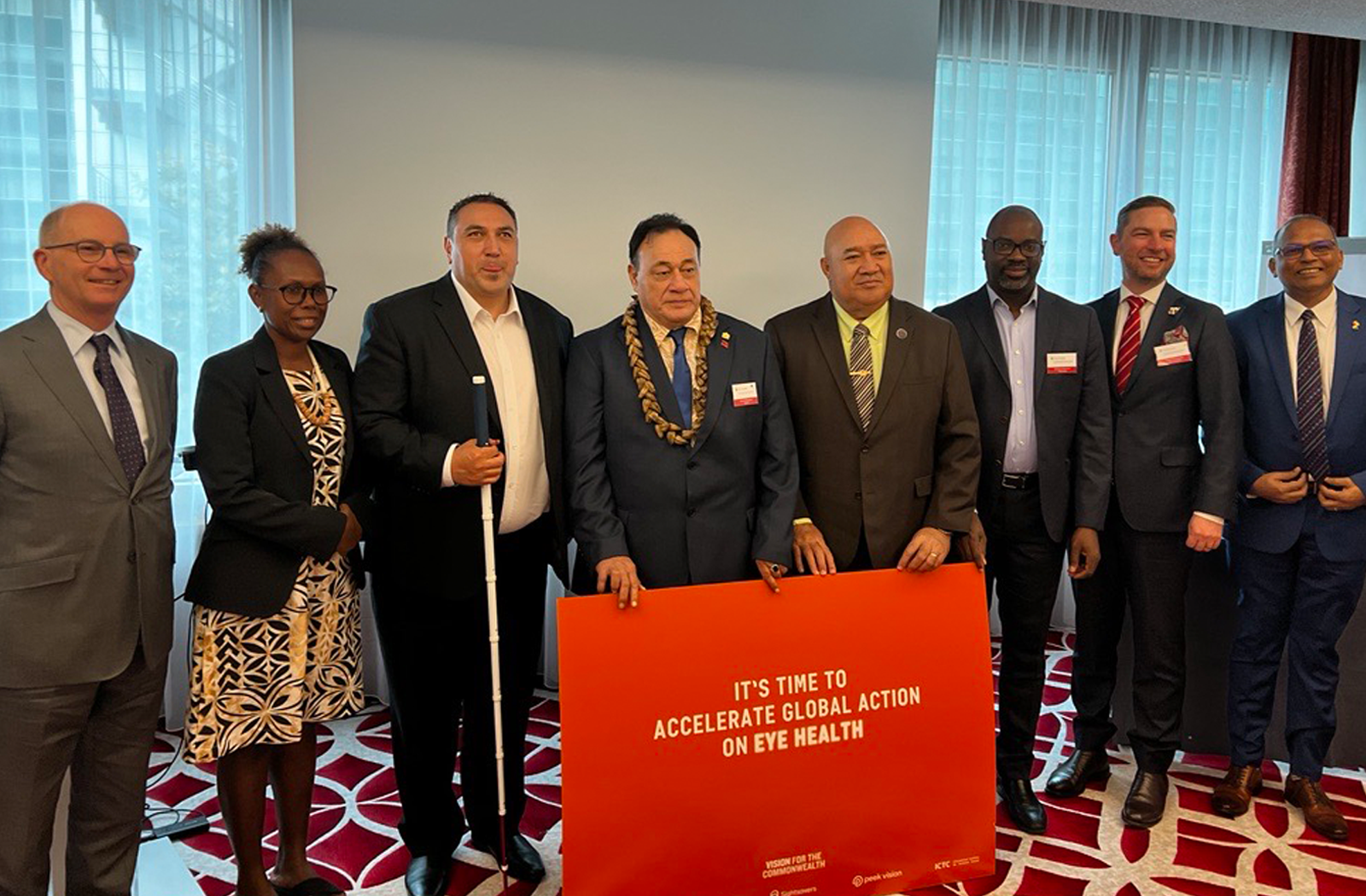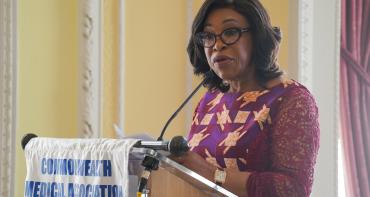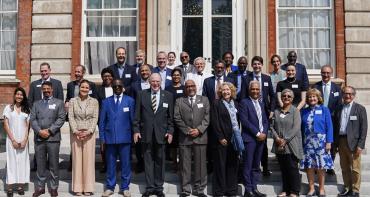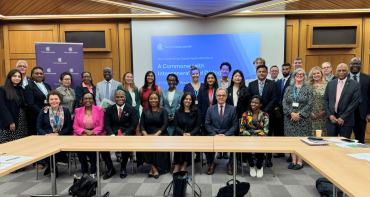Advocates for vision health are calling for urgent and collaborative action across the Commonwealth to address the impact of non-communicable diseases (NCDs) on eyesight.

NCDs and the Link to Sight
The issue was discussed at a critical high-level gathering held as part of the recent Commonwealth Health Ministers Meeting in Geneva, Switzerland.
Attended by policymakers, campaigners, health experts, and professionals, the ‘NCDs and the Link to Sight’ event was organised by the Government of Samoa and Vision for the Commonwealth, a coalition of six leading eye health organisations, charities, and campaign groups. The coalition advocates for the inclusion of eye health in broader health and development agendas.
A growing crisis
During the event, the stark reality that NCDs are responsible for 75% of all global deaths, leading to considerable premature mortality, disability, and inequality was highlighted. Also discussed was the alarming rise of diabetic retinopathy, the only condition among the top five causes of vision impairment that is increasing in prevalence globally.
Other statistics revealed that vision problems such as cataracts and refractive errors, also classified as NCDs, account for over 75% of vision impairment worldwide.
In his keynote address, Dr Saia Piukala, the Western Pacific Regional Director of the World Health Organization, said:
"We are witnessing a silent epidemic where vision impairment due to NCDs is undermining the quality of life and economic productivity of millions".
Dr Piukala urged the attendees to:
"seize this moment to advance a vision for a resilient Commonwealth, where no one is left behind due to preventable vision impairment".
Impacting opportunities
Participants also learnt about the far-reaching impact of vision health on socioeconomic development, with statistics indicating that children with vision impairments are two to five times less likely to participate in formal education in low and middle-income countries.
Valuable insights, regional perspectives, challenges and potential solutions were shared by a panel of distinguished speakers. The panel included Hon Valasi Luapitofanua To'ogamaga Tafito Selesele, Samoa’s Minister of Health; Dr Carole Poloso, the Chief Ophthalmologist of the Solomon Islands and Executive Secretary of PacEYES; and Brandon Ah Tong, Director of Policy & Advocacy at the Fred Hollows Foundation.
They all contributed to a robust discussion on tackling the dual challenges of NCDs and vision impairment. Examples were given of Samoa's proactive measures in integrating eye health into national NCD strategies and community-based interventions that were successful in reducing vision impairment in the Solomon Islands.

The call to action
Participants stressed the importance of policy advocacy and international cooperation in scaling up successful models. The event concluded with a consensus on the need for integrated health policies that address the root causes of NCDs and improve access to eye care services.
These and other health considerations will be discussed at the upcoming Commonwealth Heads of Government Meeting (CHOGM) in Samoa.



